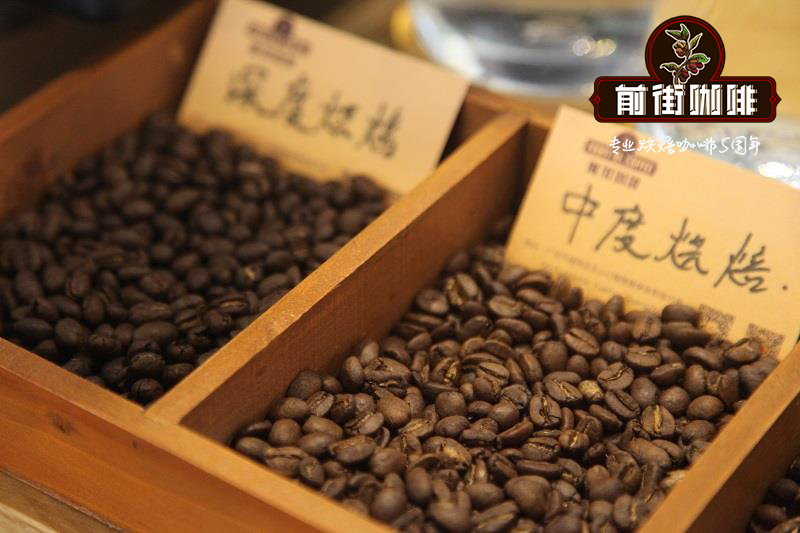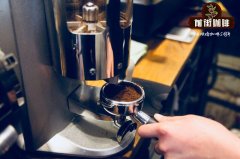What is Kopi Luwak? The difference between artificially cultured civet coffee beans and Kopi Luwak

Professional coffee knowledge exchange more coffee bean information please follow the coffee workshop (Wechat official account cafe_style)
. You must be no stranger to mention Kopi Luwak.
Because of its unique flavor and rich, round and sweet taste
It is very thick and mellow, which makes this kind of coffee very popular.
But do you know why cat poop coffee tastes so good?
The reason why the pure Kopi Luwak tastes good is that the civet is an omnivorous nocturnal animal. By its keen sense of smell, it judges the sweetest and fullest coffee cherries in the coffee tree, and occasionally chooses some coffee fruit as a snack, while coffee is found in the civet.
After fermentation in the body, it will produce a special flavor, but coffee beans are indigestible and will be excreted from the body.
The biggest effect of coffee beans fermented through the civets' intestines is to remove the acid and bitterness, so this coffee tastes very coffee but not bitter and tastes good.
Civet's internal fermentation, for civets, actually can only digest a little bit of outer skin pulp, of course, it eats coffee fruit only for the purpose of outer skin pulp, and because they will choose better coffee fruit.
The hard coffee bean seeds are soaked and fermented by digestive enzymes in the body, and special intestinal enzymes decompose the protein, producing short peptides and many free amino acids, reducing the bitterness of the coffee itself.
These coffee beans will be excreted from the civet body intact, along with the feces, which is the most primitive body.
The "natural fermentation method" has achieved the unique flavor of the civet.
After the coffee bean is pulled out by the civet, it will remove the same thing as the poop and the film outside the bean, so there is no fecal ingredient in the coffee you drink.
In this way, in the process of digestion, the coffee beans have an unparalleled magical change, the flavor tends to be unique, the taste is particularly mellow, and the rich, round and sweet taste is also incomparable to other coffee beans.
The traditional treatment of coffee fruit is to remove the skin and flesh of the coffee fruit through washing or the sun, so as to obtain coffee beans, but the coffee beans extracted in this way have not been digested and fermented in the musk cat's stomach, losing that unique flavor.
After special stir-frying and processing, it will become Kopi Luwak with round taste and unique flavor. That's what makes Kopi Luwak
It has become one of the most expensive coffee in the world, costing hundreds of dollars per pound.
In the eyes of many people, coffee is very palatable, but some people still don't like the coffee beans produced in this way.
What is Kopi Luwak fermented in vitro?
After 8 years of research and development, Xingda uses bacteria to raise the top Kopi Luwak.
Through "in vitro hot fermentation technology", ITRI has successfully developed masked palm civet Coffee with a unique taste in Taiwan, which is also a pioneer for coffee farmers in Taitung.
New value of industry. It's "in vitro hot fermentation technology", not "excretion bean"!
Both Indonesian and Vietnamese civet coffee are musk cats that eat coffee beans into their stomachs and then take them out through excreted feces.
However, for conservation, safety and health considerations, the ITRI research team coached coffee farmers in Taitung to develop masked palm civet coffee with an innovative technology of "in vitro hot fermentation." this is different from the traditional way of feeding coffee beans to civets and then removing coffee beans from cat excretion products.
The research team isolated and cultured lactic acid bacteria, yeasts, B bacteria, F bacteria and other bacteria from the intestines of masked palm civet (also a member of the civet family) in Taiwan.
Beneficial intestinal lactic acid bacteria, and then these high-purity lactic acid bacteria and fresh coffee beans were fermented in vitro, and then made into safe,
Sanitary masked palm civet coffee beans.
And how was Taiwan developed?
The applied microbiology team of the Food Science Department of the University of Science and Technology first went to Indonesia to take 30 native civet faeces to analyze the internal bacteria.
Artificial way to raise civet coffee beans!
But the ideal is that there are more than 1000 kinds of bacteria extracted from cat feces alone.
Common bacteria, these bacteria get along with the civets' gastrointestinal tract for a period of time before finding the most suitable 16 intestinal bacteria to carry out.
Artificially cultured civet coffee beans!
So in 2014, we started selling "tech civet coffee"--
Indonesian wild civet coffee is recognized as the most expensive and top coffee in the world, Yang Qiuzhong said, wild or farmed civets
Because of collecting animal feces, the civets produced are not only inhumane but also prone to the risk of infection, especially the artificially farmed civets have a higher risk of collective transmission of diseases in order to increase production and over-intensive breeding.
Through industry-university cooperation, Yang Qiuzhong, who has studied bacteria for many years, strives to develop "civet coffee" without going through animals. Yang Dengyi, a collaborator, collected raw beans from civet coffee in Indonesia, Vietnam and other places many times ago, and provided them according to different countries, producing areas and varieties.
Important Notice :
前街咖啡 FrontStreet Coffee has moved to new addredd:
FrontStreet Coffee Address: 315,Donghua East Road,GuangZhou
Tel:020 38364473
- Prev

The origin of Indonesian Kopi Luwak experiencing Kopi Luwak and how to brew Kopi Luwak
For more information on coffee beans, please follow the coffee workshop (Wechat official account cafe_style) Kopi Luwak, which is known as the most expensive coffee in the world. I heard about it before I went to Indonesia, and many people must be curious. In recent years, due to family reasons, I have visited Indonesia many times and have some experience to share. Coffee in a coffee garden in Bali, Indonesia
- Next

How much is the cat shit coffee?
Professional coffee knowledge exchange More coffee bean information Please pay attention to coffee workshop (Weixin Official Accounts cafe_style) People who like coffee should know that cat feces coffee is the most expensive coffee in the world, with a price of several hundred dollars per pound. Cat poop coffee is produced in Indonesia and is extracted from the feces of the civet and then processed, so it is also called civet.
Related
- Detailed explanation of Jadeite planting Land in Panamanian Jadeite Manor introduction to the grading system of Jadeite competitive bidding, Red bid, Green bid and Rose Summer
- Story of Coffee planting in Brenka region of Costa Rica Stonehenge Manor anaerobic heavy honey treatment of flavor mouth
- What's on the barrel of Blue Mountain Coffee beans?
- Can American coffee also pull flowers? How to use hot American style to pull out a good-looking pattern?
- Can you make a cold extract with coffee beans? What is the right proportion for cold-extracted coffee formula?
- Indonesian PWN Gold Mandrine Coffee Origin Features Flavor How to Chong? Mandolin coffee is American.
- A brief introduction to the flavor characteristics of Brazilian yellow bourbon coffee beans
- What is the effect of different water quality on the flavor of cold-extracted coffee? What kind of water is best for brewing coffee?
- Why do you think of Rose Summer whenever you mention Panamanian coffee?
- Introduction to the characteristics of authentic blue mountain coffee bean producing areas? What is the CIB Coffee Authority in Jamaica?

